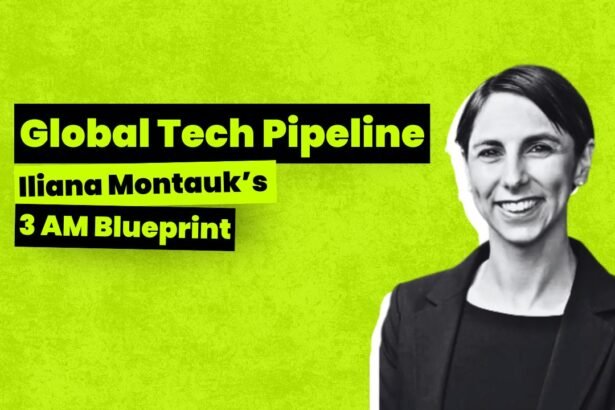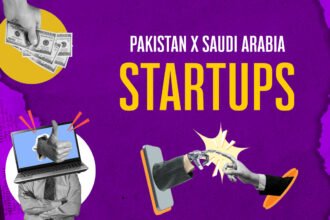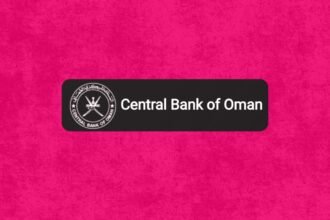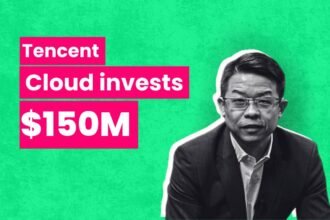When Iliana Montauk talks about the early days of founding Manara, the conviction in her voice makes the 3 a.m. livestreams sound almost romantic. “We had nothing but belief,” she said, describing quitting her job, moving back in with her parents, and going without a salary to build something she believed the MENA region—and the global tech world—desperately needed.
But Manara wasn’t built on belief alone. It was crafted from long nights, early mornings, and a profound trust in people’s potential. “I remember like going to sleep at 3am and waking up at 6am regularly,” she shared. And yet, she insists, “I honestly don’t think of those things so much as sacrifices because I just am so grateful to have had a chance… to be working on something that I’m so passionate about”.
The Spark in Palestine
Iliana’s first proof point came when a Palestinian alum landed a job at Google. “We got one of our alumni who had studied with us into Google… both sides had tried to do this before and it hadn’t worked. That was actually when we were like, okay, this is real”. What began as a side project was suddenly legitimized—Manara could be the bridge that helped MENA’s best engineers into global tech careers.
This breakthrough laid the groundwork for much larger ambitions: not just helping a few individuals succeed, but “training one million software engineers and AI scientists” who would “ultimately… become CTOs… VPs of engineering” and anchor a world-recognized tech ecosystem from the region.
“We Teach People How to Learn”
The tech world doesn’t stand still, and neither does Manara’s curriculum. “Jobs are evolving faster than they’ve ever evolved before,” Iliana said. “The key thing that people need to learn is how to learn.” While others chase trendy frameworks, Manara focuses on foundational skills: clean code, system design, scalable architecture, and professional communication—competencies that are evergreen in global tech environments.
But this isn’t about theory alone. “We’re continuously evolving the platform,” she added, referencing their code review labs, peer learning tools, and real-time support. “You can just log in and ask any question… and get unblocked by a professional”.
Community Isn’t a Feature. It’s the Core.
If there’s one non-negotiable Iliana is protective of, it’s community. “We bring the people back into the online learning,” she emphasized. In Manara’s model, peer-to-peer sessions, accountability circles, and role models are baked into the experience.
“This is not just another Coursera or Udacity,” she explained. “This is one where you’re really studying with people like you. And that makes a difference. It gives people confidence”. That human connection, according to her, is what allows Manara learners to thrive—and why they’re retained at higher rates than most online programs, particularly in emerging markets.
Empowering Women in the Region
Iliana spoke passionately about the gender dynamics she observed. “Women in the MENA region often study technical fields at high rates but face barriers in employment”. She recognized the demand from both companies and governments to correct that imbalance—and met it with targeted support.
From women-only cohorts to soft-skills training tailored to tech interviews, Manara built a pipeline where women not only learn, but lead. Today, 40% of Manara’s certified learners are women—a remarkable shift in a field that’s often male-dominated in global tech hubs.
Regional Growth, Global Impact
The rise in demand for engineers in cities like Cairo and Amman is no accident. “Thousands of new engineering jobs are being created… to serve the Saudi market, or the UAE market,” Iliana noted. She sees local talent as regional talent—and Manara is positioning that talent to compete globally.
“There’s a big leaning towards hiring talent that speaks the language,” she explained, not just linguistically, but culturally and technically. Her goal? Make MENA as essential to global tech as Eastern Europe is to backend systems or India to scalable ops.
Quality over Quantity
As Manara’s reach grows, Iliana remains obsessed with quality. “We started with quality, and we always aim to maintain that bar,” she said. With certifications like AWS Machine Learning Associate boasting pass rates between 90–96% on Manara’s platform—sometimes higher than AWS’s own internal employee benchmarks—there’s no risk of becoming an assembly line.
“These certifications are very meaningful,” she insisted. “Even internally [at AWS]… the pass rates are not always that high”.
The Silicon Valley-MENA Bridge
Iliana describes herself as someone who once dreamed of living close to family in Silicon Valley while contributing to regional growth. “I had always had this dream… somehow contributing some knowledge from here in a way that would be useful for the MENA region,” she said. Today, she flies between geographies, building partnerships and meeting teams, while staying grounded—literally and metaphorically.
A Spirit Animal That Says It All
At the end of the interview, we threw her a fun curveball: What’s your spirit animal?
“Oh, the goat,” she said, laughing. “Because I love hiking and jumping around on rocks.” It wasn’t just a light moment—it was a metaphor. “When I used to teach a lot of the Manara classes still myself, I would connect with learners… sometimes I would see people in Cairo going to the Sinai for hiking… I want to go there because there’s just so many mountains and rocks”.
That image of a goat—nimble, balanced, and climbing steadily across uneven terrain—felt like the perfect emblem for Manara’s own story. It doesn’t sprint. It climbs. But it always keeps going, even when the path gets steep.
Looking Ahead
Ultimately, Iliana’s vision isn’t just about numbers. “Success is not just about training 1 million learners,” she said. “But enabling a robust tech ecosystem… so that people start viewing this [region] as a market, just like they view Eastern Europe as a market”.
In that world, MENA engineers won’t be the exception in global tech rooms—they’ll be leading them.




